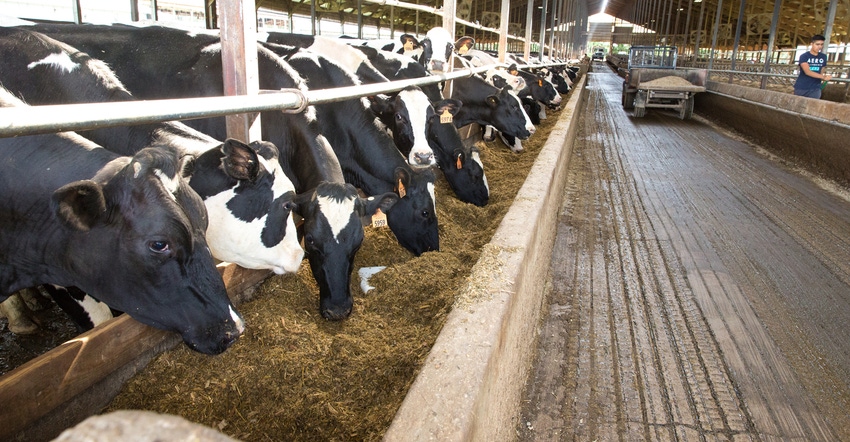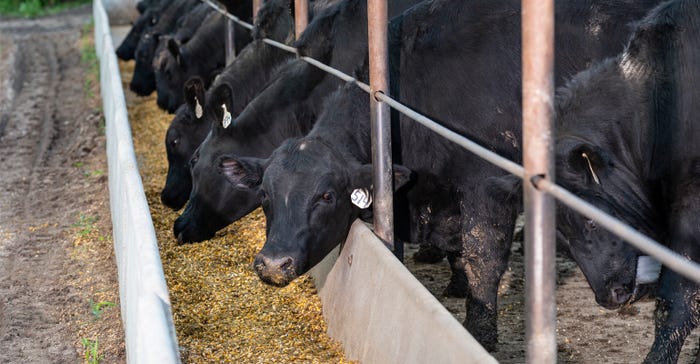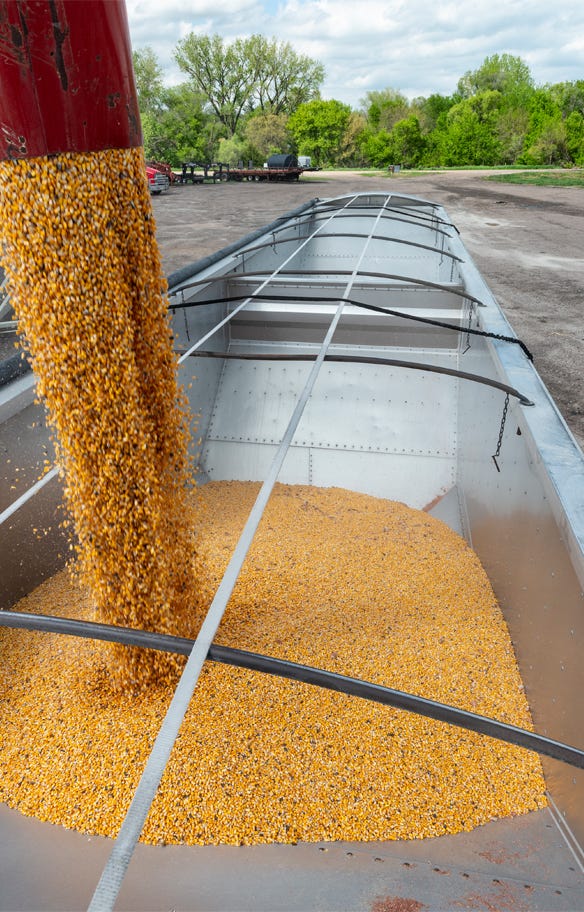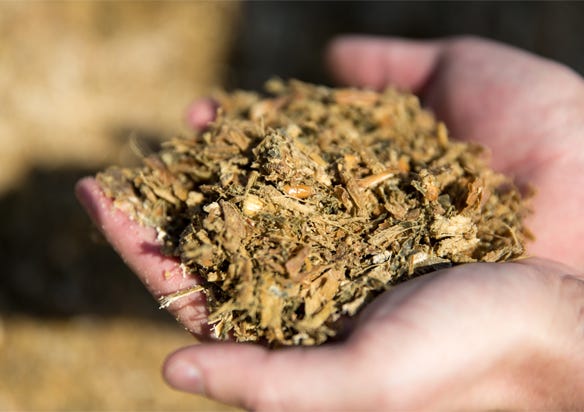
When the scientists at Syngenta developed an advanced alpha-Amylase trait for Enogen corn, they were intent on providing the best possible benefit to ethanol producers. What they now know is that the same trait that has proven a boon to ethanol also has significant value for cattle feeders.
The idea was to provide an enzyme essential to breaking down the complex starches of the corn kernel inside the grain, which allows ethanol producers to skip adding it during processing.
"The alpha-amylase enzyme is present in all corn in a small amount," says Duane Martin, Commercial Traits Manager with Syngenta. "Its purpose is to supply energy to the corn plant from the time the seed germinates until it emerges from the soil."
He says the science behind Enogen corn was to introduce a trait that would cause the grain to have a different form of alpha-amylase that is more effective in breaking down starch and is present in larger amounts than the plant normally produces.
"Other than the alpha-amylase enzyme, there is no difference in the grain. The oil, the protein, the starch, are all unchanged," Martin says.
The ethanol industry was eager for the new corn and growers have been quick to adopt it, especially since ethanol producers typical pay an average premium of about 40 cents per bushel to growers.
Corn with the Enogen trait is considered genetically modified because the gene for the trait is inserted into the corn plant. Enogen corn is required to be grown only under contract.
But even as Syngenta was concentrating on Enogen as an ethanol trait, there were scientists who were thinking that it might also provide an increased level of feed efficiency for cattle. The reasoning looked at the fact at alpha-amylase provides the energy for the corn sprout to become a seedling. More alpha-amylase would logically mean more energy, and more energy would translate to higher feeding efficiency.
"After we had developed the trait for ethanol, we began researching feed in 2013. The first trials were done at the University of Nebraska, and those were enough to use as a foundation for expanding. Since then, we’ve also been working with researchers at Kansas State University."
 FEED EFFICIENCY FOR BEEF: The Enogen corn trait, developed to help the ethanol industry, is also proving to be a desirable trait for improving feed efficiency in beef production.
FEED EFFICIENCY FOR BEEF: The Enogen corn trait, developed to help the ethanol industry, is also proving to be a desirable trait for improving feed efficiency in beef production.

Dale Blasi, Extension specialist in beef cattle nutrition and management at K-State, says the university has conducted two studies from last year’s corn crop and both showed a statistically significant difference in favor of Enogen Feed corn.
"We just completed a third study that we haven’t fully analyzed, and we will kick off a fourth study using silage feed after the first of the year," Blasi says. "So far, everything we’ve done has been positive for Enogen."
In the K-State study, a total of 384 English crossbred steers, having an average weight of 538 pounds and originating from Texas, were used to determine the effects on performance when fed Enogen Feed corn as either whole shelled or processed as dry-rolled at ad libitum intake. The study showed that feeding Enogen corn provided an efficiency gain of 5.5% over ordinary rolled corn, Blasi says.
Blasi says some testing planned for this year was delayed because the crop intended for use in the study was wiped out by drought, but that testing is still planned for the 2019 growing year.
Martin says other studies conducted for Syngenta showed the same result — an average feed efficiency gain of about 5% in backgrounder or stocker calves. Studies in the finishing also showed about a 5% efficiency gain.
Syngenta is now marketing the Enogen trait to cattlemen for the second season, and Martin says there has been a fairly rapid rate of adoption.
"Livestock producers are operating on a tight margin and any gain in production efficiency is important," he says. "They are looking for any way to increase margins in their operations and the results of our studies have created a lot of interest in this."
 PROTECTED TRAIT: The gene that allows a corn plant to generate an enhanced alpha-Amylase enzyme is a GMO trait and requires growers to have a contract with Syngenta. It must be grown in dedicated fields and stored in dedicated bins as an identity-preserved grain.
PROTECTED TRAIT: The gene that allows a corn plant to generate an enhanced alpha-Amylase enzyme is a GMO trait and requires growers to have a contract with Syngenta. It must be grown in dedicated fields and stored in dedicated bins as an identity-preserved grain.

In the 2018 growing season, there were about 200,000 acres of Enogen corn grown across the western and central corn belt. The seed is available through Golden Harvest dealers and NK seed retailers.
Martin says more research is being done on the potential of Enogen feed for dairy operations, and testing of Enogen corn silage will continue in the coming year.
In studies so far, Enogen feed has not been shown to increase the risk of bloat, which is often a problem with high-energy feeds.
As with all GMO traits, stewardship matters
Producers who want to grow Enogen corn, whether for sale to ethanol plants or for their own use as cattle feed, are required to grow it under direct contract with Syngenta.
"We want producers to get the maximum benefit from the trait," says Duane Martin, Commercial Traits Manager with Syngenta. "We have an entire team of people to help farmers to do this."
Farmers need to be prepared to handle Enogen corn as an identity-preserved crop, he says. They need to dedicate fields for growing it and have dedicated storage facilities.
 SILAGE TESTS ONGOING: Tests so far have shown that the alpha-Amylase enzyme provides the same feed efficiency in silage as it does in shelled or flaked corn. Studies, including some at Kansas State University, are ongoing.
SILAGE TESTS ONGOING: Tests so far have shown that the alpha-Amylase enzyme provides the same feed efficiency in silage as it does in shelled or flaked corn. Studies, including some at Kansas State University, are ongoing.

"They must be good record keepers as well," he says. "We need to keep track of when and where it is being fed and we can help them keep track of how they benefit. We have a dedicated team to help farmers maintain the stewardship requirements of this product."
Syngenta does not charge a premium on Enogen corn seed sold to cattle producers and Enogen Feed hybrids are elite, high yielding hybrids so corn farmers growing their own cattle feed do not sacrifice yield to achieve the feed benefits this corn may provide.
About the Author(s)
You May Also Like




